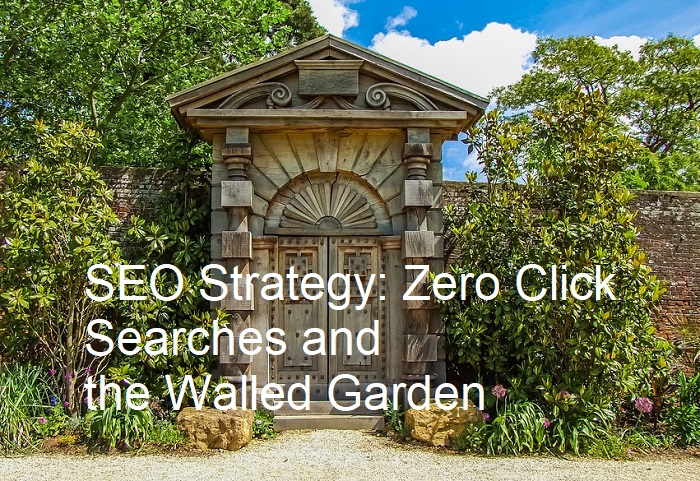How to Choose the Right Keywords for Your SEO Campaign
Whether Google, ChatGPT, Gemini, or other AI search engines, searches always come down to keywords. Mostly they’re in the form of a phrase or a question. Consequently, that makes them the top ranking/relevance signal in your content.
From your web stats reports, you might see them, if you’re ranking well. However, search users use a wide range of phrases and questions and those reports might not reveal what you need to know. Our quest is to find and through a process, choose the best keywords based on prioritization. Then we can build your content with the words and topic themes weaved in, in a way Google and AI search engines will trust and value.
There are plenty of tools to help us find them and assess their performance value – engagement, contact or sales revenue. We want to find all the best ones and win the top rankings.
Bringing it Together with Good Research
As you’ll see below, we have a manual process of gathering and assessing keyword value. Some companies have lots of keyword stats already, while some other small businesses may lack helpful insights. Never fear, our tools will reveal them and their merit to your content strategy and SEO/PPC strategy. In fact, a ppc campaign can be very helpful in this process.
In the keyword research process, you’ll have kpi’s and budget considerations that will affect your choices. One of them is the ppc bid price for potential keywords. In this chart below, we see how valuable some keywords are. The question becomes, which keywords can you compete for given the level of SEO talent you have at your disposal and your SEO promotional budget.
Auto Insurance — Ultracompetitive But Opportunities are Present
The auto insurance industry as an example, is one of the most lucrative and competitive online. Everyone is searching for affordable auto insurance today, and if your competition is willing to spend $75 per click, you may want to pay attention to those keywords. They likely are high-converting ones used by well-qualified customers.
Auto insurance, car insurance and auto insurance quotes are overwhelming the highest volume choices. Yet, they’re also harder to rank on. You’d need a much more thorough and advanced SEO strategy (and well funded). And you might prefer targeting some easier phrases such as: quote for car insurance, and auto insurance company San Diego. They might create more clicks and be easier to convert.
| Keyword | Avg. Monthly Searches (exact match only) | Keyword Competitiveness | Price Per Click |
| performance car insurance | 50 | 0.82 | $74.07 |
| company car insurance | 140 | 0.93 | $72.63 |
| young drivers car insurance | 30 | 0.81 | $59.38 |
| insurance car quote | 480 | 0.97 | $57.57 |
| auto insurance | 165000 | 0.93 | $56.99 |
| automobile insurance quotes | 880 | 1 | $56.40 |
| affordable insurance | 12100 | 0.93 | $55.74 |
| business loans | 27100 | 0.99 | $55.29 |
| auto insurance quotes online | 3600 | 0.99 | $54.41 |
| best car insurance | 12100 | 0.97 | $54.20 |
| get a car insurance quote | 320 | 0.97 | $53.52 |
| quick car insurance quote | 320 | 0.96 | $53.50 |
| get auto insurance quote | 1000 | 0.99 | $53.34 |
| insurance quotes for car | 720 | 0.99 | $53.02 |
| car insurance quotes online | 5400 | 1 | $52.42 |
| online car insurance quotes | 1900 | 0.98 | $52.03 |
| auto insurance quotes | 74000 | 1 | $51.53 |
| best auto insurance | 9900 | 0.98 | $51.40 |
| online auto insurance quotes | 1300 | 0.99 | $51.30 |
| business insurance quote | 2400 | 0.98 | $51.00 |
| quote for car insurance | 880 | 0.98 | $50.50 |
| which car insurance | 50 | 0.77 | $50.30 |
| car insurance online quote | 480 | 0.97 | $50.21 |
| best car insurance quotes | 260 | 0.97 | $49.01 |
| insurance quotes car | 2900 | 0.99 | $48.70 |
| insurance quotes auto | 1900 | 0.99 | $48.43 |
| buy car insurance online | 880 | 0.99 | $47.75 |
| car insurance | 246000 | 0.96 | $47.66 |
| car insurance quotes | 135000 | 1 | $47.60 |
| best car insurance companies | 3600 | 0.95 | $46.44 |
| instant car insurance quote | 320 | 0.99 | $46.44 |
| homeowners insurance quotes | 9900 | 0.99 | $46.38 |
| auto home insurance | 480 | 0.94 | $46.37 |
| auto quotes | 3600 | 0.99 | $46.26 |
| auto and home insurance quotes | 480 | 0.99 | $45.94 |
| best car insurance rates | 1300 | 0.99 | $45.72 |
| car insurance companies | 40500 | 0.96 | $45.44 |
| car insurance policy | 590 | 0.91 | $45.19 |
| free car insurance quotes | 3600 | 0.99 | $44.52 |
| auto insurance companies | 33100 | 0.95 | $44.25 |
| auto insurance estimate | 880 | 0.95 | $44.24 |
| car insurance chicago | 320 | 0.96 | $44.19 |
| new car insurance | 590 | 0.97 | $44.05 |
In the end, your choice comes down to what you want to compete for and feel confident in pursuing. Your ppc campaign analytics will help you determine which generate real, profitable leads. It takes time so be patient.
A 7 Step Process for Choosing the Best
Google is less cooperative today about divulging this info, so we have to dig down with techniques to discover those keyword phrases that will create the best leads. Let’s look at a 7-step process to help us get this right.
Step 1. Research: Define the Business & Audience Target
In the SEO audit/opportunity evaluation, we discover your UVP, brand positioning, competitors and what actually drives your sales. Then we discover your customer’s intent, what it is they want and for what purpose. This leads us to defining the content topics, angles, and copywriting with the right keywords.
| Key Element | Questions I Ask |
| Business Model | What are we selling/offering? What drives revenue? |
| Ideal Customer | Who buys? What motivates them? What problems are they solving? |
| Geographic Focus | Local, national, or international SEO? |
| Content Angle | Informational? Commercial? Transactional? |
Step 2: Build a Core Seed Keyword Set
Refine and prioritize keywords:
- Discover core and secondary keywords using Google Search Console, ahrefs SEO tool, Google ppc stats (search volume, difficulty, ppc value, stemmed variations and related words).
- Establish your website & competitors’ website content menus/categories (competitor research)
- Review customer language from reviews, support tickets, forums (e.g., Reddit, Quora)
- Discuss with sales team to zero in on customer problems and the words/questions used in customer sales meetings.
This gives us the natural language terms, not just “SEO-ish” guesses.
Step 3: Expand with Additional Helpful Keyword Tools (But Smartly)
| Tool | Purpose |
| Google Autocomplete / People Also Ask | Real-world phrasing & questions they’re asking |
| Google Trends | Seasonal shifts, rising queries |
| AnswerThePublic / AlsoAsked | “Why”, “How”, “Should” keyword ideas |
| Reddit, Amazon, YouTube Search Bars | Voice-of-customer insight |
Step 4: Classify by Search Intent
To further rank keyword possibilities, organize keywords into User Intent groups:
| Intent Type | Example Keywords for a moving company | Content Type |
| Informational | “How to reduce moving costs” | Blog post / Guide |
| Commercial | “Best long-distance moving company reviews” | Comparison / Top 10 |
| Transactional | “book piano movers near me” | Service page |
| Navigational | “Allied Van Lines login” | Landing/support |
This ensures content, questions in copywriting, and keywords match buyer stage. This works for both SEO and GEO.
Step 5: Perform Competitive Keyword and Topic Gap Analysis
- Identify 3–5 strongest competitors.
- Extract their top-ranking keywords, high performing content pages, and backlink strengths.
Look for:
Opportunity gaps → Keywords competitors rank for but client doesn’t
Quick wins → Keywords where client already ranks page 2–3
Low-hanging long tails → 50–200 searches/mo but high conversion intent
Step 6: Score & Prioritize for ROI
Keyword choices will depend on your level of ambition. If you intent to be competitive and compete with top competitors, you may choose high volume, core or head keyword phrases (1, 2 or 3 keywords) to capture customers who may be just learning. That puts your company/brand first in their minds so you can shape their understanding and preference. It’s powerful to be in that “market leader” position. If you feel you shouldn’t or won’t compete for the high competition phrases, you will pursue selected secondary phrases which are less used (3 to 6 keyword phrases) which are often very high converting.
Then we evaluate/rank these phrases using 4 weighted factors:
| Factor | Criteria |
| Relevance | Directly connected to business offering? |
| Search Intent Fit | Buyer stage clarity |
| Ranking Difficulty | Domain strength vs. competition |
| Revenue Potential | Likelihood of conversion |
Then we build a prioritized keyword map → Which keyword goes to which page/type of content. In truth, keyword to page strategy is more complex than this. Your content pages are a ranking power/topic team, and thus, advanced SEO techniques and GEO techniques are used to power up a variety of pages, so your content appears more thorough, relevant, and a better user experience.
Step 7: Validate with Live SERP Inspection (Critical Step Most Skip)
Review those sites ranking for your most important phrases, by searching for each top target keyword and check:
- What format wins? (videos? events, trends and news? comparison pages? listicles? service pages?)
- What SERP features exist? (featured snippets? maps? FAQs?)
- Is Google favoring national vs local vs niche players?
Our objective is to rank well using the right content format.
Deliverables to Document Our Choices (So you get a clear stable view)
- Keyword Master Sheet (with search volume, difficulty, intent, opportunity score)
- Keyword-to-Page Map (assigning primary & secondary keywords per URL)
- Content Plan (based on gaps & revenue intent)
- Quick Wins Report (keywords already ranking low-hanging fruit)
In a manual SEO audit, we review and inspect closely, so we’re sure we’ve found the best information and we’re making the right choices. This is very important and a fast computerized audit is not the way to go for a serious company.
Contact Gord at 416 998 6246 to discuss your digital marketing needs.







